Miketz Chanukah 2022: Breastplate Worthy & Circumcisions En Masse
by devadmin | December 22, 2022 8:05 pm
Raboyseyee and Ladies,
The heylige Ois and eishes chayil are mamish just back from Los Angeles where we spent some 30 hours on the ground and joined in the festivities as our beloved son Jonathan became engaged to Rachel Glouberman, she of Los Angeles, California. Le’chaim and mazel tov!
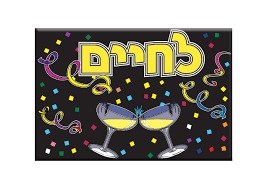
Rachel is the beautiful daughter of Flora and Steven -A’H- Glouberman. A big mazel tov to the entire extended Glouberman and Grossman families. Jonathan’s bris -some years back- was on the first day Chanukah; his engagement to Rachel on the third night of Chanukah. May all future Chanukahs bring Rachel and Jonathan many blessings, good mazel, and much brightness for years to come. May they merit to build a beautiful home together and enjoy decades of marital bliss. May they also move back to New York one day soon!

Breastplate Worthy & Circumcisions En Masse
Let’s talk parsha. So happens that circumcisions -en masse- are discussed in the medrish on our parsha; we shall get to them soon. It’s one shabbis later and another 12 years have passed. It’s the year 2229 in our illustrious history. We are two weeks away from the end of Sefer Bereishis when Yaakov will bentch (bless) his children; some, but perhaps not all. That being said, they all went on to be known as the holy tribes and we, -all of us- will forever be known as having descended from one of them. All Yiddin -us included- were at one time associated with one of the holy tribes. What happened to them? Do you know anyone from most of them? Not! They are the lost tribes. In our times, we are all either from Sheyvet Levi who gave us Kohanim and Livi’im, or, more commonly referred to as Yisroel, meaning its members come from one of these lost tribes. Which one? Ver veyst?
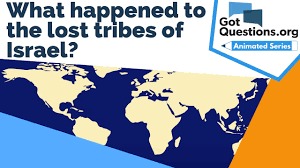
Ober, let us begin here. Ah Freylichin Chanukah, Happy New Year and a Ksiva Vachasima Toiva. Has the Ois gone in gantzin meshuga (totally off the reservation)? Don’t answer that! Why are we combining Rosh Hashono with Chanukah? What’s taka pshat? Though the calendar says it’s Shabbis Chanukah, though Rosh Choidesh Teyves is mamish upon us -this coming Shabbis and Sunday- though it’s December -the temperatures -so the meteorologists tells us will plunge on shabbis- and though we will have the great pleasure of hearing Parshas Miketz, along with readings from two additional Sifrai Torah (it’s also Shabbis Chanukah and Rosh Choidesh), ober says the medrish, azoy: a key event headlining the parsha -Yoisef’s coming out- took place on Rosh Hashono. Well, blow me down and a gittin Yom Tov!
Let us get back to the holy brothers -sans Binyoimin- who were all part of a massive conspiracy to kill Yoisef and then sell him into slavery for a few silver coins (the exact value, of course, subject to a machloikes). And their reward for such outlandish -perhaps criminal behavior? The Koihen Godol wears all their names on his breastplate when perfuming the holy avoido in the Beis Hamikdash on the holiest day, Yom Kippur. They are breastplate worthy!
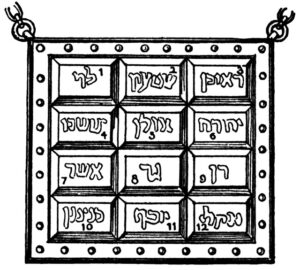
The RBSO has seemingly forgiven them; they all have hall passes directly into the holy of holies, and that Raboyseyee is the lesson of the day. The RBSO forgives. Lesson for us? For a few, this was their second hall pass. Though Reuven either moved his mother’s bed or mounted it, if you chap, he too was forgiven and though Yehuda, solicited what he believed to be the local zoina (whore) on the street corner, and instead wound up paying his own former daughter in law for favors, if you chap, he too was a good guy and breastplate worthy. As an aside, did you ever wonder why these are called favors when one is paying? Veyter.
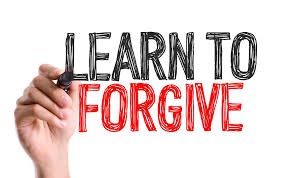
As last week’s parsha was coming to an end, Yoisef, became the first person in history, after rebuffing Mrs. Potiphar’s advances, to face sexual harassment charges; a model since emulated by many thousands of scorned women and their attorneys. Yehuda had to pay for favors; Yoisef was offered a freebie and walked away. Could that be the reason that he’s referred to as a na’ar? A what? So happens that the literal translation of the word na’ar means that he was young, youthful. It also so happens that in the Yiddish language, one is called a na’ar when one does na’arishe zachin, stupid things. Paying for roadside services and never looking under the hood? Shoin!
Says the Medrish Ha-godol: “The RBSO – in the same manner in which He smites a person, He cures him.” Yoisef’s original downfall and ultimate rise to greatness resulted from dreams. It’s zicher the case that many rise during their dreams, if you chap, ober Yoisef’s rise will be sustained, if you chap. Shoin! His dreams of superiority and leadership over his – at least at times- less than holy brothers, fueled their flames of hatred towards him, which, as avada you recall, climaxed with his sale into slavery. The Medrish tells us, “Yoisef descended through a dream, and rose through a dream.” He fell on account of his absorption in his own fantasies, and rose as a result of his ability to focus on the dreams of others. So happens that most taka rise from their own fantasies; then again Yoisef is referred to as an “ish-tzadik;” are you? It’s all a matter of perspective; if you’re the dreamer, you are a chazir (swine)! Gishmak. Veyter.
In our parsha, Yoisef interprets Paroy’s two dreams to his satisfaction. Paroy proclaims Yoisef a genius, appoints him Viceroy of Mitzrayim, gives him a new goyishe name and arranges for Yoisef to marry Osnas, the daughter of Potiphera: Osnas? Who is she? Nu, though we covered her in prior posts, mistama you want to read about her one more time; and you will. Ober halt zich eyn (keep your pants on). Did we just read that Yoisef was renamed? Why are so many important Toirah characters getting new names? Avrom to Avrohom. Sorai to Soro, Yaakov to Yisroel, and this week Paroy calls Yoisef by the new name of ‘Tofnas Payne’ach.’ What is that, and what’s pshat with that name?
Given that Paroy did not know or speak any Hebrew, we must assume that he gave Yoisef an Egyptian name and like the change of his clothing, his new name signified a change in identity. What do these words mean? Ver veyst?
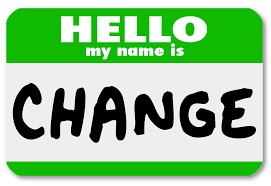
Seemingly, not many really knew and those who did, didn’t agree as to its meaning. Some say that in Egyptian it means ‘God Speaks, he lives.’ In modern Hebrew, the root pane’ach means to ‘decipher.’ Ober, asks the Ramban: Has the heylige Toirah provided us with his new Egyptian name? If so, what is its meaning? On the other hand, if the Toirah has rendered Yoisef’s Egyptian name into Hebrew, then we really don’t know what his [Egyptian] name [given by Paroy] was. Says Rashi: Yoisef’s title ‘pane’ach’ is a unique word in the heylige Toirah as it appears only once. And here’s a shtikel interesting tidbit for the shabbis tish: one-time-only words have a technical name: hapax legomenon. Says Ibn Ezra: Pane’ach is one of the unusual 4-letter roots, it is clearly a quadrilateral root (having four root letters) where Hebrew typically has triliteral roots.
| 45. And Pharaoh named Joseph Zaphenath Pa’neach, and he gave him Asenath the daughter of Poti phera, the governor of On, for a wife, and Joseph went forth over the land of Egypt. | מהוַיִּקְרָ֨א פַרְעֹ֥ה שֵֽׁם־יוֹסֵף֘ צָֽפְנַ֣ת פַּעְנֵ֒חַ֒ וַיִּתֶּן־ל֣וֹ אֶת־אָֽסְנַ֗ת בַּת־פּ֥וֹטִי פֶ֛רַע כֹּהֵ֥ן אֹ֖ן לְאִשָּׁ֑ה וַיֵּצֵ֥א יוֹסֵ֖ף עַל־אֶ֥רֶץ מִצְרָֽיִם: |
Says Ibn Caspi, (a pashtan and rationalist): Thus, it means ’revealer of hidden things’, and one shouldn’t complain that this meaning for Pa’neach is not found elsewhere in Scriptures, for via our sins and the sins of our ancestors, we have lost perfect knowledge of our languages, as the Rambam explains in Moreh Nevuchim. The bottom line: it’s comforting to know that our ancestors weren’t angels either, yet the RBSO still loved them and avada that’s also good news for you. The RBSO is great!
Efsher you’re wondering azoy: may a nice Jewish boy like Yoisef or even an oisvorf like yourself have a goyishe name? Says Reb Moshe Feinstein, OBM (Igrois Moishe, Orach Chaim 4:66) azoy: there is no legal prohibition in using a non-Hebrew or non-Jewish name though it is preferable to use one’s Jewish or Hebrew name. Does everyone agree? Avada nisht (of course not) and Rabbi Yekusiel Yehudah Halberstam (Responsa Divrei Yetziv, Likutim, 102), maintains that it is actually forbidden to use a non-Jewish name. He cites a verse in this week’s parsha as evidence. The posik above stated that Paroy renamed Yoisef “Tzofnas Paneach,” an Egyptian name. Yet, in that same verse, after having been given his new name, the Toirah states, “and Yoisef went out into Egypt,” thus indicating that he still referred to himself by his original Hebrew name, Yoisef. Case closed? Not! This argument may not be proof positive for others reasons. First, according to many commentaries the name “Tzofnas Pa’aneach,” is actually also Hebrew and therefore would not be relevant to the discussion. Secondly, some commentaries say that it was not a name at all, but a title, and therefore there is nothing surprising about Yoisef still being called by his original name. Settled? Ver veyst and veyter.
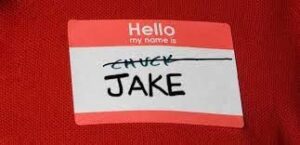
The drama is building, there’s tension in the air. It’s palpable mamish, and we’re one week away from a 22 year-old cold case being solved. Ober nuch nisht (not quite yet). As Parshas Vayeshev was coming to an end, our hero Yoisef was still valgering in tfisa (wasting his years in jail). Two years earlier, he asked the wine steward, whose dream he successfully interpreted, to remember him and mention him favorably to Paroy; the minuvil didn’t. Lesson learned: many don’t repay favors, even life changing one’s. Sadly, it’s the way of the world. Say a few medroshim that Yoisef lost two more years of his life, his sentence elongated mamish from ten to twelve years because he had the temerity to ask for human intervention in getting him out of the dungeon when instead, he should have relied solely on the RBSO. On the other hand, other medroshim teach us that Yoisef was the ultimate baal-ha’bi’tochon (believer in the RBSO’s abilities to always save him). Which is it? Ver veyst?
Nu, let’s get back to Paroy’s mysterious chaloimis (dreams) whose meanings eluded the royal advisors ober not our hero Yoisef, who aside from being a dreamer himself, has suddenly become a dream interpreter. Yoisef may have been among the first to acquire additional talents and skills while away, if you chap, ober zicher not the last. As to the rest of the parsha, here it is in a nutshell. Paroy has two dreams. His newly re-instated wine steward -two years later- finally remembers Yoisef and tells Paroy all about his mastery as a dream interpreter. Yoisef is released, gets a shave, haircut and new clothing and does a masterful job of deciphering Paroy’s dreams. Paroy is impressed and makes Yoisef his top advisor. Seven years later, there’s a famine, and Yaakov, living in another country but not too far away, sends his sons -sans Binyomin- down to Mitzrayim (Egypt) to buy food. The brothers do not recognize Yoisef when they meet him, he recognizes them. People rarely forget their captors. Their images are forever emblazoned into their memory banks. Yoisef tests his brothers by accusing them of being spies, arrests Shimon, and demands that they bring Binyomin, his only full brother, in order to prove they are not spies and speak the truth. Why he davka wanted Shimon? Some say because the Shimon/Levi combo was a dangerous duo; no kidding! Yoisef sets up his little brother by placing a royal palace goblet into his knapsack. Binyomin too is now being held! Brotherly love mamish; time for Kiddush!
Why is all this happening? Why did the RBSO allow Yoisef, his father’s favorite, to get into such a giferliche mess? Nu, this week you’ll find out as Yoisef, once a slave, will rise to power and feed not just all of Mitzrayim but also his entire mishpocho. He will inadvertently also become the catalyst for his father’s entire family to enter Mitzrayim, live there and eventually become enslaved for 210 years. Why? It’s all quite simple: it’s what the RBSO wanted. The RBSO avada works in mysterious ways and who are we to question? Beginning this week, we will mamish see how the RBSO fills in the blanks as our parsha answers many questions that left us scratching our heads. Veyter!
Avada the RBSO didn’t forget that Yoisef was nebech suffering and enslaved to the Mitzrim and by the middle of the parsha the tables will have turned when Yoisef will exact some measure of revenge. By then, the predicted famine will be ravaging Mitzrayim, the Mitzrim are hungry and Yoisef is now in charge of food distribution. Ober, he’s thinking retribution; let’s read what took place.
In advance of the seven-year famine he predicted, Yoisef stored provisions during the good times; not at all, a terrible idea. He warned the Mitzrim to do the same. Says the heylige Toirah that when the hunger came, the people went to king Paroy looking for food. Paroy said, ‘Go to Yoisef, whatever he tells you, you should do.” (Bereishis 41: 55). Let us read this more than amazing medrish (Tanchuma) which says azoy: When the people came to Paroy asking for food, he asked them why they had not set aside provisions for themselves during the years of plenty. They replied that everything they had in their storehouses had rotted, so Paroy told them to go to Yoisef. However, they replied that Yoisef would only give them food if all the males first circumcised themselves. Said Paroy: do whatever Yoisef asked, for if he was able to make their grain rot in the storehouses, perhaps he would also be able to kill them if they did not comply with his demands. Yoisef got his way. After the men had been circumcised Yoisef sold them food. Yoisef had them all cut down to size in exchange for food? What’s pshat here?
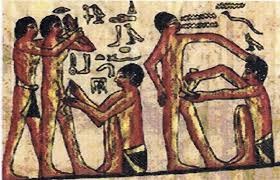
Efsher you’re wondering how or why the penis was connected to the sale of food? Why was Yoisef insistent that the Mitzrim goyim (gentiles) be cut down to size, if you chap? Were they too big? Did that make them hungrier? Are the appetites connected? Or, maybe you’re just wondering how it was that Yoisef was able to store the grain without it rotting, yet the Mitzrim couldn’t? Was he a miracle worker? Or maybe you’re wondering why he was hung up, if you chap, on this particular mitzvah of circumcision, a law that does not apply to the goyim? What’s pshat here?
Avada the medrish wouldn’t leave one hanging, especially after a bris, if you chap, and here are a few potential answers. Says the Yofeh Toi’ar: Yoisef knew of the imminent exile of the Yiddin to Mitzrayim, and was worried that they would become attracted to the hot shiksa Mitzri girls (and that the Yiddin couldn’t epes measure up, if you chap). Yoisef had the foresight -though not the foreskin- and chapped that the Mitzrim would poke fun of the circumcised Yiddin. In order to prevent this potential embarrassment to the Yiddin who would want to patchke with the Mitzri girls, he made all the Egyptians also circumcise themselves. Ouch ober gishmak mamish. Avada it’s no wonder that Yoisef is ever popular and a Jewish hero. And while many other good Jews have laid the groundwork to prepare their brethren for life with a good education, Yoisef wanted to ensure that the Yiddin also enjoyed life and had a greater variety to select from.
Could this be a real medrish? Is that really what they had in mind with this pshat? Was circumcision of the Mitzrim the best guarantee that the Yiddin would not assimilate? Seemingly, circumcision en masse, would have the opposite effect; logic would dictate, if you chap, that by removing the main physical difference between the Mitzrim and the Yiddin, assimilation would rise, if not soar. Ober says the She’lah azoy: Yoisef was trying to wean the Mitzrim away from their sexual depravity. And says the heylige Toirah (Vayikro 8: 3), azoy: the Yiddin are warned to refrain from the deviant sexual practices of the Mitzrim, “Do not perform the practice of the land of Egypt in which you dwelled…”. Yoisef foresaw that the Mitzrim would eventually be punished in the future for their behavior, and therefore hoped to temper or limit their actions through circumcision. Has circumcision ever limited chazerish behavior? Ver veyst?
Another view: Says the RambaM (Guide for the Perplexed 3:33), azoy: the covenant of Bris Milah is sealed on the organ of reproduction to teach us restraint in regard to our sexual desires. Circumcision symbolically shows that we limit ourselves, and set guidelines and rules about our physical conduct. Clearly Yoisef personifies the highest level of sexual restraint. Avada you recall the heylige Ois telling you that Yoisef carries the appellation ‘Tzadik’ because he showed givaldige restraint by not succumbing to Potiphar’s wife. And for that reason alone, he is closely associated with Bris Milah. Gishmak!
What does the penis have to do with food? Ver veyst! Yoisef isn’t the first of Yaakov’s special kinderlach who ordered a mass circumcision. Penis envy? Ver veyst? Mistama you think that the Ois is making all this up, but it’s 100% emes. Zicher you recall -from a few weeks back- what Shimon and Levi did when Shechem, the chazir (swine), raped Dina and wanted to marry her. They ordered all males to get circumcised. And now, it’s Yoisef’s turn. As an aside, make sure you read next week’s past (Vayigash) where Yoisef will reveal himself to his brothers and pull down his own pants to prove to his brother’s that he was their long lost brother. Did they all have the same moiel and vut? Just how this was proof when Yoisef ordered all males to be circumcised, ver veyst? Then again, his revelation might or might not have predated the en masse party.
And that’s it for this week.
A gitten Shabbis, a gittin Choidesh Teyves and a happy Shabbis Chanukah
The Heylige Oisvorfer Ruv
Yitz Grossman
Source URL: https://oisvorfer.com/miketz-chanukah-2022-breastplate-worthy-circumcisions-en-masse/